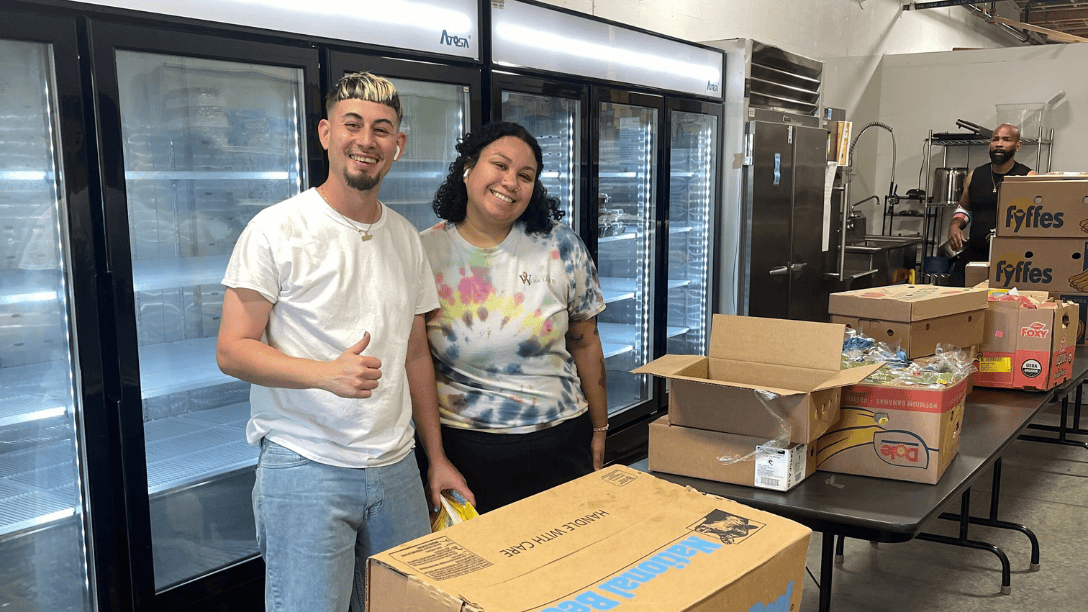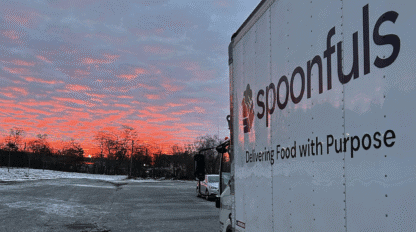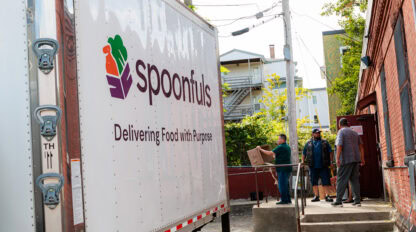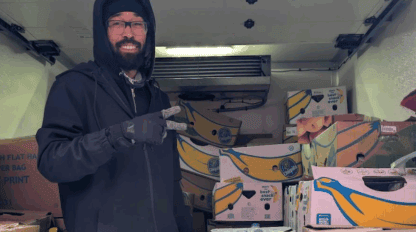Spoonfuls Spotlight: AIDS Project Worcester

Here at Spoonfuls, we recognize that access to fresh, healthy food is a basic human right for everyone. However, we know food insecurity disproportionately affects individuals with marginalized identities across the United States (Feeding America). That’s why we’re proud to have partners in our mix who specialize in serving people facing an increased risk of hunger here in Massachusetts.
One of these partners is AIDS Project Worcester, which serves people with HIV, AIDS, and others who may be at risk of contracting these illnesses. We sat down with Jyselle Cruz, Transportation Coordinator, Food Program Manager and Case Manager, and Tricia Price, Director of Program Support Services, at AIDS Project Worcester to discuss our partnership and collective impact.
Tell us more about AIDS Project Worcester.
How does your nutrition program work? And how do Spoonfuls’ deliveries support that program?
What I love the most about Spoonfuls is that good food is rescued from the supermarket before it’s thrown away. (I have personally seen perfectly edible food getting taken off shelves at a grocery store, and I have asked, “What are you going to do with all that?” The worker said, “Throw it away.” They weren’t allowed to donate it at that store. I thought that was absurd with the number of people I see who are food insecure.) With the amount of food we have, why are people still going without food on their table? So much is wasted. And there is a solution to that! So what Spoonfuls does…I think it’s the best thing ever. No one should be going hungry.
What kinds of barriers are common for people with HIV/AIDS to face when it comes to accessing fresh, healthy food?
How have you seen the stigma around utilizing food programs play out at your organization?
When people facing food insecurity do get the nutritious food they need, do you see changes in them?
Trisha: There’s one client, who also volunteers his time at AIDS Project Worcester. That client benefits from the partnership, too. He has a large family of six, and gets a lot of help with groceries from us. He appreciates the quick and easy prepared meals from Spoonfuls. They help him make sure his four children not only have enough to eat, but are getting nutritious food. That same type of food is what allows us to support other larger families, too. So we are really appreciative of what Spoonfuls brings to us and what it allows us to do for others.


